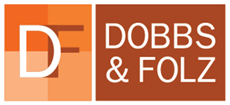Studies show that when it comes to the division of assets after death, surviving family members are more likely to fight about personal keepsakes than about money. I always tell my clients, it’s not your millions of dollars’ worth of farm ground, your cash in the bank or the stock in your portfolios that your kids will fight over when you’re gone. It’s the stuff—the jewelry, china, silver, crystal, tools, guns, vehicles, photos and artwork.
According to a 2012 survey conducted for Allianz Life Insurance 64 percent of boomers and 58 percent of elders say family mementos and heirlooms are a key inheritance. Only 9 percent of boomers expressed eagerness to inherit money, and 14 percent of elders believe financial assets are an important legacy.
Family mementos are among the most common causes of conflict after a relative dies. Money can be divided relatively evenly. But who gets Mom’s favorite coffee mug which has a $2 value but priceless sentiment?
Here are five steps you can take to avoid messy family inheritance squabbles.
1. Start discussions now.
When you are ready to develop your estate plan, talk to your family members about specific keepsakes. If you have aging parents, consider asking them what items they would like to give to whom.
Different financial standings of your children and other heirs intensify the need for you to proactively discuss and make decisions together about the division of your assets.
Also, take time to tell—and record—family stories, including the identities of people featured in family photos.
2. Make a list.
Make sure your financial wishes are carried out appropriately. Your estate plan should include a Will, possibly a Trust, a Power of Attorney in case you’re incapacitated, a Healthcare Power of Attorney and a Living Will that clarifies your wishes regarding end-of-life care.
Because family heirlooms can spark conflicts, you need to create a memorandum that details how you wish to divvy up your personal property. The memorandum describes who will receive specific items, and the will references the memorandum. While relatives may not like your decisions, they’re less likely to be angry at each other if you are specific.
Be specific about items–such as which diamond ring goes to which daughter. Attaching photos of the item and referencing each photo in your memorandum can help.
And make sure your Executor knows where to find the memorandum. Do not rely on sticky notes on the back of items! Those tend to disappear or get rearranged.
The memorandum isn’t likely to list all of your possessions. A good way to deal with the remaining items is to have each relative, starting with the oldest child, pick one item, and then repeat the process until all items are selected, or draw straws or select cards, to have an ordered process.
In the event of a family dispute, one option is to have all the items put up for auction. Family members can bid on items, and the money goes back to the estate to be divided equally.
3. Avoid spotlighting favorites.
If you have a favorite niece or grandson, consider displaying that affection by making gifts before you die, but be wary of gift taxes. Then, make provisions for an equitable post-death division of property.
4. Think about naming a professional.
Choosing a family member as an Executor, or family members as Co-Executors, can lead to arguments and complications. Also, remarriages can introduce added complications and mistrust.
That’s why hiring a corporate fiduciary as Executor through your bank or trust company may make sense. You can name a professional Executor in your Will, or your chosen Executors may opt to hire a professional after your death.
5. Leave a legacy beyond just your assets.
Sharing your personal values can be one of your most treasured bequests. While it isn’t legally binding, your ethical will lets you pass along your life story and values.
Your ethical will can take the form of a one-page document, a bound book, a letter tucked in with the Will or an online blog. Though potentially tough to write, your ethical will gives you the opportunity to speak about a wide range of subjects that are important to you.
Doing any one of these steps will be helpful to those you leave behind, and is certainly better than doing nothing. Remembering a loved one with a special keepsake or memento can mean the world to that person. The family discord may start over a $2 coffee mug or the tools in the garage, but then spread to an all-out war over the cash, stock, bonds, farm ground and vacation homes. Leaving your kids to fight over your stuff with no direction from you can mean an end to Family Thanksgivings after you’re gone.
